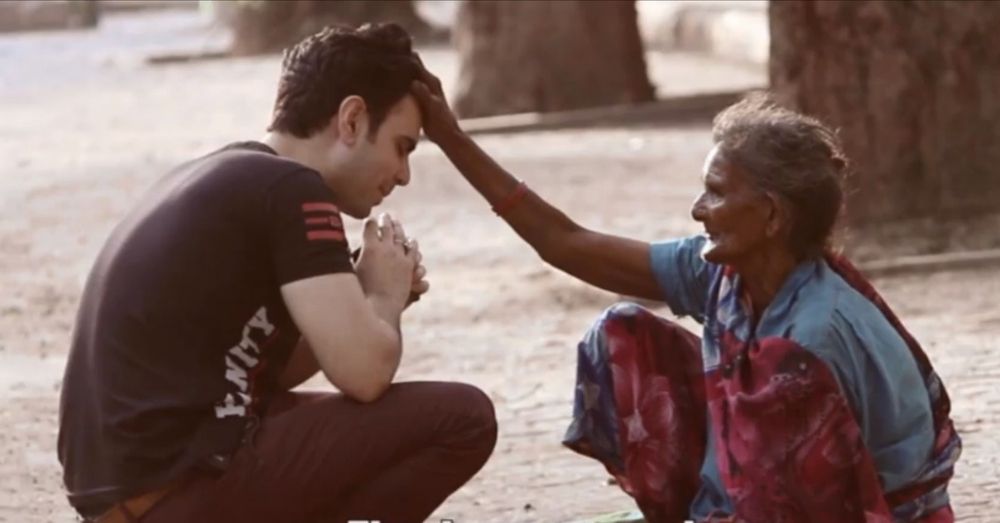I want to feel good & free: so I do good things to others and have meaning in my life: even to those who have hurt me
Fifth Sunday of Easter – May 18, 2025
St Eugene de Mazenod gave clear instructions to his Oblates that our task is to help people be, first of all, human; then help them to be Christian; and then, finally, help them to be Saints. Here, it’s important to say “fully human” because we are already human, to a various extents.
This instruction is a great formula for anyone to overcome mental health issues and feeling that they no longer have a purpose in life, and links in with today’s Gospel command.
The First reading reminds us of the need for regular encouragement to persevere in the journey to be a Christian = to act like Christ (not just be labelled a Christian): meaning it’s for everyone. It’s not always easy to take the leap to go beyond our ordinary human desires for justice, personal security and happiness.
During the past 2,000 years, it’s unfortunate that the badge of Christian was reduced to following multiple rules. So, we thank God for the corrections that have come to us from time to time, such as Vatican II (1960’s): which called us to look outside of ourselves and see the sins we were guilty of related to our lack of love to those outside our “circle”.
The Second Reading reminds us that God wants to live close to us: and, if we are Christians, it means that should be our desire also: to be close to people, especially those who suffer.
Finally, the Gospel shows us how we make that leap to become fully human and Christian: “I give you a new commandment: love one another; just as I have loved you”.
This, of course, is more than loving our immediate and extended family members or friends… but that’s a good place to start, just as Jesus did. The context of this Gospel command comes after we hear that: “Judas has just left the building”. Jesus knew he was going out to betray him, but still chose to feed him. Wow!
Now, given the misuse of the word in many social contexts today, it’s important to understand what is love: it simply means to desire and act in a way that is best for the other person. This applies whether that person is a friend or a stranger. It’s not romance!
Perhaps, it is best, when we use actual examples to open up the idea of “love”:
Jesus Christ suffered and died for us.
Wife gets up early to prepare breakfast for her husband after a big argument the night before.
Mum/ Dad continue to feed us when we misbehave or are rude.
A family forgives a stranger after a car crash kills their daughter.
A man forgives the men who bombed a building that killed his daughter.
A mother calls the Police after her daughter steals for drugs a third time.
Telling your friend the truth, which makes you unpopular.
You help someone pay for their ticket when you see they don’t have enough.
You stop and give someone a lift along the way.
You help the local priest even after he was rude.
All these actions usually go against the grain: we often want an apology from or punishment for the other person; or we keep quiet so my friend or other person still “thinks well of me”.
Being a Christian is no easy step to take each day. Sometimes we will fail, but if we keep trying, it does make our lives more meaningful, and we remain surrounded by many grateful people in our lives.
Difficult as it is, sometimes, it’s the only pathway to reach true freedom for ourselves.
When we don’t ‘love,’ we usually spend the rest of the day or week feeling bitter and angry; which takes away our freedom and peace of mind.
Many of our young people in Kenya have inspired me by the way they’ve forgiven and helped their fathers or other family members who have hurt or betrayed them by wasting the family money on drinking or laziness.
We are reliably taught from very early Church history (written by Josephus, a non-Christian), how people were amazed by the Christians during the plagues: they cared for one another,
despite the danger of catching the virus or disease that was killing many people.
These simple, but counter-cultural actions impressed many people: words backed by actions.
By our actions of love we, like Paul and Barnabas, we put fresh heart into people to do good.
Let’s continue to be gentle people of the Resurrection, doing actions of love which encourage us to remain faithful: and often help others to change their lives. Happy Easter!
By Gerard Conlan, OMI


